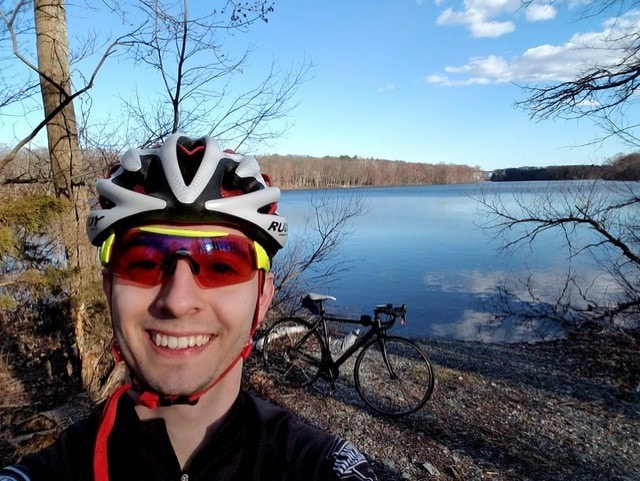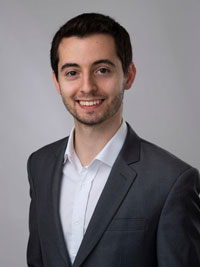How have you stayed involved with U of T since graduating?
I’m a proud U of T alum and I definitely feel an affinity to the U of T community. I felt like I got so much while I was there, so it made sense to stay connected and try to give back where I could.
Early in your career it’s a little harder to give back financially, but there are other ways that we can stay involved. As a student, I was involved in the musical and comedy revue, Skule Nite, and after I graduated, I supported the group by helping arrange musical scores and mentoring the orchestra. It was amazing to support such a talented group of students. (The alumni that come back are endearingly called fossils because we’re old!)
Providing mentorship has been a delight. I often learn as much talking to students as I feel they might learn from me
Now I’m mentoring undergrads who are proactively looking for direction on how to find internships and jobs and how to navigate potential courses. I was impressed with the faculty’s initiative to reach out to alumni who have taken career paths that might speak to these students. Providing mentorship has been a delight. I often learn as much talking to them as I feel they might learn from me, so it’s been a really, really valuable experience.
And finally, as an affiliate of the U of T Transportation Research Institute I’m part of a working group to develop new curriculum options for transportation engineering at the undergraduate level, with linkages to planning and policy. I’ve found this to be very fulfilling volunteer work, helping to ensure we are educating students in areas that are so crucial for the future of our cities.
U of T embraces the principle of inclusive excellence—a campus community rooted in access, equity, diversity, and inclusivity. What does the term mean to you?
As an urban planner, I believe inclusivity is a central principle for building cities that are equitable and just. Inclusivity means bringing in perspectives other than our own, and going the extra mile to ensure everyone’s voices are heard. For example, in planning public transit, it means not only identifying the needs of current riders, but also reaching out to those who would ride if cost barriers were reduced or service was enhanced.
U of T is also committed to a sustainable future—to harness our expertise for decisive action on the climate crisis. What does the term sustainable future mean to you?
To me, it simply means leaving our world in a better place than we found it. It means not only reaching net-zero emissions, but finding ways to reverse the harms we have inflicted on our planet while advancing our social and economic goals.
While climate-change headlines may be dire, I remain optimistic that we can come together to solve this crisis. Fortunately, so many solutions have already been invented, and don’t need a moonshot approach.
Creating a sustainable future simply means leaving our world in a better place than we found it
In the realm of urban transportation, for example, we know we need to accelerate the switch to electric vehicles, which have advanced remarkably in recent years. We also know that we need to make it easier to walk, cycle and take public transit. These interventions all require multi-disciplinary approaches including engineering, land use planning, housing policy, law, economic development strategies, etc. – we can’t stay in our silos!
At an individual level, I’m trying to live a more sustainable lifestyle (I just bought my first EV… an e-bike!) but I know reaching a sustainable future means tackling massive global issues, and we cannot rely solely on individual action. This takes regional, national, and international co-operation, and partnership between academia, the private sector, and government. As a public servant, I’m definitely grateful for the impact of U of T’s research and teaching, providing us with evidence-based policy support and a cadre of wonderful graduates to hire.
Where do you keep your U of T degree?
It is up on my wall right behind my laptop!
What words do you live by?
Let your identity evolve. When I started my career, I used to say: I’m an engineer. Then I went to planning school and all of a sudden I asked myself, am I an urban planner now? I realized I can carve out my own personal and professional identity, and don’t have to fit into a neat mould. I can wear different hats throughout my career, and build a toolkit of skills to achieve my professional goals. Life’s too short to stay on one path!
Defy Gravity: The Campaign for the University of Toronto has a goal of achieving one million volunteer engagements by our graduates. These engagements range from mentoring, event attendance, and countless opportunities to give the gift of time to help U of T, our students, and our alumni community.



